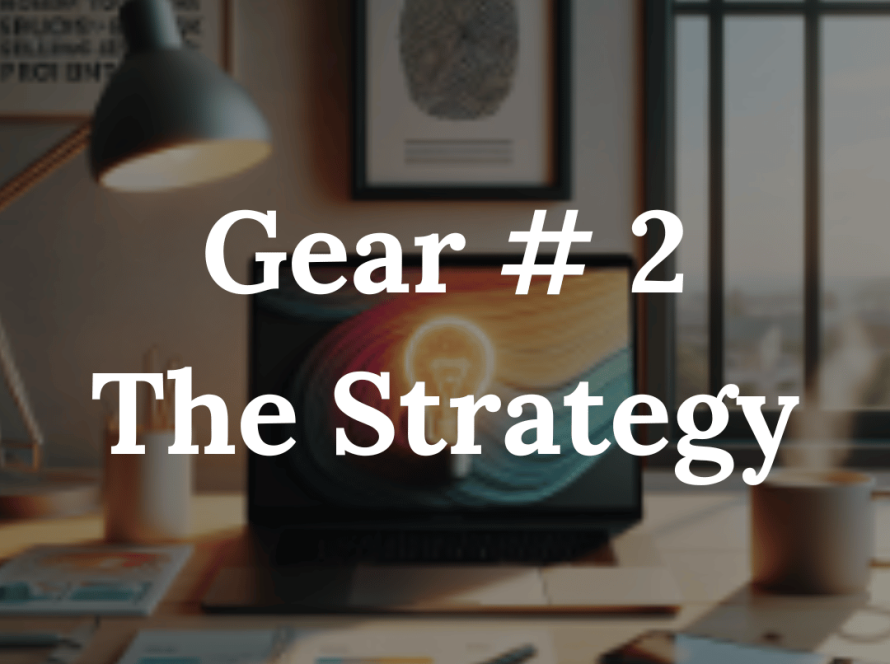Quick Answer: AI can help small businesses by automating repetitive tasks, enhancing customer service, improving data analysis for better decision-making, personalizing marketing efforts, and optimizing supply chain management.
In today’s business environment, small business owners often find themselves juggling multiple tasks, struggling to keep up with larger competitors, and feeling overwhelmed by the volume of data that needs to be analyzed for strategic decision-making. Enter Artificial Intelligence (AI) – a game-changing solution that can significantly ease these burdens.
AI benefits for small businesses are vast. It can take over time-consuming, repetitive tasks, freeing up business owners and their teams to focus on core activities that drive growth and innovation. More than just a tool for automation, AI can analyze vast amounts of data quickly, uncovering valuable insights about customer behavior and market trends that can inform smarter, data-driven decisions.
Moreover, AI levels the playing field, allowing small businesses to compete more effectively with larger companies. By employing AI-powered tools for personalized marketing, customer service, and business operations, small enterprises can offer the kind of efficiency, customizability, and service that customers have come to expect in the digital age.

Whether you’re looking to improve your customer service, make better use of your data, or streamline your operations, AI offers a range of tools and technologies to help your small business thrive in a competitive market. Let’s dive deeper into how embracing AI can transform your business.
Automating Business Processes
When we talk about how AI can help small businesses, automating business processes is a big piece of the puzzle. It’s all about making things easier, faster, and more accurate. Imagine having a super-efficient helper that never gets tired, makes mistakes, or needs a coffee break. That’s what AI can do for your business processes. Let’s break it down.
Project Management
Efficiency and Productivity are key here. Tools like Zapier, Asana, and ClickUp use AI to take the grunt work out of project management.
- Zapier automates tasks between different web apps. It’s like having a digital assistant who knows exactly when to send an email, update a spreadsheet, or post on social media without you lifting a finger.
- Asana helps teams plan, organize, and track work. It’s smart enough to help prioritize tasks and set realistic deadlines based on your team’s capacity.
- ClickUp is an all-in-one suite that manages tasks, documents, goals, and chats. Its AI can predict how long tasks will take to complete, helping you avoid overloading your team.

Accounting
Zeni.AI, Vic.AI, and Sage are changing the game for small business accounting. They bring Efficiency and Productivity by automating the tedious parts of bookkeeping and financial management.
- Zeni.AI does more than just crunch numbers. It analyzes your transactions to make bookkeeping faster and tax preparation a breeze. It can even spot trends to help you manage your cash flow better.
- Vic.AI is all about precision. It uses AI to automate accounting processes, ensuring data entry is accurate. This means fewer errors and faster processing times for invoices and payments.
- Sage uses AI to streamline accounting tasks. It can automate data entry, reconcile accounts, and even provide insights into your business finances. This helps you make informed decisions without spending hours poring over spreadsheets.

Why It Matters
For small businesses, time and accuracy are precious. Automating these business processes means you can spend more time focusing on what really matters – growing your business. You’re not bogged down by the details, and you’re less likely to make costly mistakes.
In Summary
Automating business processes with AI isn’t just a nice-to-have; it’s becoming essential for staying competitive. Whether it’s managing projects more efficiently with Zapier, Asana, or ClickUp, or keeping your finances in check with Zeni.AI, Vic.AI, or Sage, these tools can give your small business the boost it needs.
And remember, it’s not just about saving time; it’s about making your business operations smarter and more resilient. The question isn’t if AI will become a part of small business operations, but how quickly you can integrate it to start reaping the benefits.
Now, let’s explore how AI can also provide deep insights through data analysis, further empowering small businesses to make informed decisions and stay ahead of the curve.
Gaining Insight Through Data Analysis
In the world of business, staying informed and ahead of market trends is crucial. This is where AI steps in, transforming data into actionable insights. Let’s dive into how AI aids in market research and data-driven decision-making, key areas where small businesses can gain a competitive edge.
Market Research
Market research is essential for understanding your industry, competitors, and customers. Traditional methods can be time-consuming and expensive, but AI changes the game.
ChatGPT and Google Bard are at the forefront of this revolution. These AI-driven tools can sift through vast amounts of data in seconds, providing detailed analyses and insights that would take humans hours, if not days, to compile. For instance, Bridget Greenwood utilized ChatGPT to explore new markets for her business, The Bigger Pie. She found it “invaluable for gaining industry-specific knowledge and insights,” demonstrating how AI can significantly streamline the market research process.
The beauty of these tools lies in their ability to understand and process natural language, making them accessible to anyone with basic typing skills. You can ask complex questions and receive concise, informed responses, enabling you to quickly grasp new market trends or consumer demands.
Data-Driven Decision Making
Making informed decisions is critical for any business, but it’s especially crucial for small businesses that might not have the resources to bounce back from missteps. This is where AI tools like Tableau and Amazon Forecast come into play.
Tableau helps businesses visualize their data, turning complex datasets into easy-to-understand charts and graphs. This visualization aids in identifying patterns or trends that might not be apparent in raw data, helping businesses anticipate market shifts or consumer behavior changes.
Amazon Forecast leverages machine learning to provide predictive analytics, offering forecasts based on historical data. This can be a game-changer for small businesses, allowing for more accurate inventory planning, budget allocation, and marketing strategies. Predictive analytics can forecast customer demand, helping businesses prepare for busy periods or product launches with greater confidence.
By harnessing the power of AI for data analysis, small businesses can achieve a deeper understanding of their market and customers. This insight enables them to make data-driven decisions, reducing guesswork and enhancing strategic planning. Whether it’s through gaining a clearer view of the competitive landscape with ChatGPT, visualizing sales trends with Tableau, or predicting customer demand with Amazon Forecast, AI tools are invaluable for small businesses looking to thrive in today’s market.
In the next section, we’ll explore how AI can enhance customer and employee engagement, further showcasing the versatile benefits of AI for small businesses.
Enhancing Customer and Employee Engagement
In the heart of every successful small business lies a strong connection with its customers and employees. This bond is the lifeline that fuels growth, fosters loyalty, and drives innovation. So, how can AI help small businesses strengthen this crucial relationship? Let’s dive into the realms of Customer Service and Content Marketing to find out.
Customer Service
Imagine a world where every customer feels heard, understood, and valued. AI is turning this vision into reality for small businesses through tools like Zendesk, Zowie, and ChatGPT. These platforms use AI to offer personalization and responsiveness that can rival even the most attentive human service.
-
Zendesk and Zowie specialize in integrating AI into customer service operations, making it easier for businesses to manage inquiries. They automate responses to common questions, freeing up human agents to tackle more complex issues. This not only speeds up response times but also ensures that customers get the help they need when they need it.
-
ChatGPT goes a step further by engaging in natural, human-like conversations with customers. Whether it’s answering queries, providing product information, or resolving issues, ChatGPT can adapt its responses based on the customer’s tone and context, offering a highly personalized experience.
Content Marketing
Content is king. But for small businesses, producing high-quality, relevant content consistently can be a daunting task. Enter AI tools like Jasper.AI, HyperWrite, Bard, and Grammarly, which are revolutionizing content marketing by making it more accessible and effective.
-
Jasper.AI and HyperWrite focus on generating creative content, from blog posts to social media updates. By understanding the audience and learning from performance data, these tools can suggest topics, craft engaging narratives, and even optimize content for search engines.
-
Bard leverages Google’s vast data resources to provide fresh insights and ideas for content that resonates with your target audience. It can help businesses stay ahead of trends and position themselves as thought leaders in their industry.
-
Grammarly ensures that all content, whether generated by humans or AI, is polished and professional. It checks for grammar, punctuation, and style, making sure that your message is clear and error-free.
By integrating these AI tools into their operations, small businesses can provide customer service and content marketing that are not only efficient but also deeply engaging. This leads to stronger relationships with both customers and employees, creating a loyal community around your brand.
It’s clear that AI offers vast potential for enhancing customer and employee engagement, proving once again that technology can be a powerful ally for small businesses in their quest for growth and success.
Leveraging AI for Growth
In the world of small business, growth isn’t just a goal—it’s a necessity. AI is stepping up as a game-changer, offering tools and strategies that can significantly amplify marketing efforts and sales outcomes. Let’s dive into how AI can help small businesses in two critical areas: Personalized Marketing and Content Creation.
Personalized Marketing
In the age of information overload, personalized marketing isn’t just nice to have; it’s what customers expect. AI shines brightly here, enabling small businesses to tailor their communications like never before.
-
Email Campaigns: AI tools can analyze customer data to send highly targeted emails based on past purchases, browsing behavior, and even the time they’re most likely to open an email. This level of personalization can dramatically increase open rates and conversions.
-
Social Media Ads: AI doesn’t just stop at emails. It extends its magic to social media, helping businesses create ads that resonate with their audience. By analyzing likes, shares, and interactions, AI can suggest content types, best posting times, and even target demographics to ensure your ads reach the right eyes.
The beauty of AI in personalized marketing is its ability to learn and adapt. The more you use it, the smarter it gets, fine-tuning your marketing efforts to engage customers in a way that feels personal and relevant.
Content Creation
Creating content that captivates and engages your audience is no small feat. Thankfully, AI is here to lend a creative hand.
-
Adobe Firefly: Think of it as your AI-powered graphic designer. Adobe Firefly helps businesses create stunning visuals for their marketing campaigns, social media posts, and more. With its intuitive interface, small businesses can produce professional-quality graphics without the steep learning curve or the need for a dedicated designer.
-
Pictory: Video content is king, but producing it can be time-consuming and expensive. Pictory uses AI to simplify the process, allowing businesses to create engaging videos from existing content. Whether it’s turning blog posts into short videos or summarizing webinars, Pictory makes video content accessible to small businesses.
The key to leveraging AI for content creation is creativity. AI tools provide the canvas and the brushes, but the vision is yours. By combining AI’s efficiency with human creativity, small businesses can produce content that stands out in a crowded marketplace.
As we’ve seen, AI offers a plethora of tools and strategies to help small businesses grow through personalized marketing and innovative content creation. By harnessing these technologies, businesses can not only save time and resources but also connect with their customers in more meaningful ways, driving sales and enhancing brand loyalty.
In the next section, we’ll explore how to navigate the challenges that come with integrating AI into your business operations, ensuring that you can fully leverage AI’s potential while maintaining ethical standards and data integrity.
Overcoming Challenges with AI
Ethical AI Use
When small businesses start using AI, they face a few hurdles. It’s not all smooth sailing. Let’s break down these challenges and how you can overcome them, focusing on cost, data accuracy, bias, and the importance of ethical AI use.
Cost
AI tools can seem expensive at first glance. But, not all AI solutions will break the bank. There are free tools like Bard and ChatGPT that small businesses can start with. As you grow, the investment in more sophisticated AI can pay off by boosting efficiency and freeing up your time for other tasks. It’s about finding the right balance for your budget and needs.
Data Accuracy
Data is the lifeblood of AI. If the data is wrong, AI can make mistakes. To ensure data accuracy, start by cleaning your data. Remove any errors or outdated information. Regularly update your data to keep it fresh. Tools like Tableau and Amazon Forecast can help make sense of your data, ensuring your AI has the best foundation to work from.
Bias
AI learns from data. If this data has biases, the AI will too. This can lead to unfair or harmful decisions. For example, an AI hiring tool might prefer male candidates if it’s trained on data from a male-dominated field. To prevent this, use diverse data sets. Also, regularly check your AI’s decisions for fairness.
Bias Prevention
Actively work to identify and remove bias from your AI systems. This might mean adjusting the data your AI learns from or tweaking the AI’s algorithms. The goal is to ensure your AI treats all users fairly, regardless of their background.
Data Integrity
Keeping your data accurate, complete, and reliable is crucial. This means protecting your data from tampering or loss. Use secure storage solutions and keep backups. Make sure only authorized people can access sensitive data. By maintaining data integrity, you ensure your AI has a solid foundation to work from.
In summary, while AI offers many opportunities for small businesses, navigating its challenges requires careful planning and ethical consideration. By focusing on cost-effective solutions, ensuring data accuracy, actively preventing bias, and maintaining data integrity, small businesses can leverage AI to not only enhance their operations but also uphold high ethical standards. The role of AI in small businesses is set to grow, making it an exciting time for innovation and growth.
Conclusion
As we’ve explored the transformative power of AI, it’s clear that the future of artificial intelligence in small businesses is not just bright; it’s revolutionary. AI is no longer a luxury reserved for the giants of industry but a necessity for small businesses aiming to stay competitive and innovative in a rapidly evolving digital landscape. From automating mundane tasks to enhancing customer experiences and driving data-driven decision-making, AI’s potential to propel small businesses into new realms of efficiency and growth is unprecedented.
However, embracing AI is not without its challenges. Concerns around cost, data accuracy, and bias are valid and require thoughtful consideration and strategic planning. Yet, as AI technology continues to advance, solutions to these challenges are becoming more accessible and effective. The key lies in starting small, focusing on specific areas where AI can make an immediate impact, and gradually expanding its use as confidence and understanding grow.
At Profit Leap, we’re committed to guiding small businesses through their AI journey. Our expertise and services are designed to demystify AI, making it more accessible and practical for small businesses. Whether you’re looking to optimize your marketing strategies, enhance customer service, or streamline operations, we’re here to help you leverage the right AI tools to achieve your goals.
The future of AI in small businesses is not just about technology; it’s about transformation. It’s about using AI to unlock new opportunities, drive growth, and create more meaningful connections with customers. As AI continues to evolve, so too will the ways in which small businesses can utilize this powerful tool. By staying informed, adaptable, and open to innovation, small businesses can not only navigate the challenges of today but also shape the opportunities of tomorrow.
In conclusion, the journey into AI for small businesses is an exciting venture into uncharted territory. It promises not only to enhance operational efficiency and customer engagement but also to open up new avenues for growth and innovation. At Profit Leap, we are excited to be part of this journey with you, helping to harness the power of AI to propel your business forward. Let’s embrace the future of AI together and see where it can take us.


